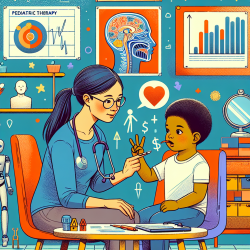Recent research has shed light on the educational support needs of injured children and their families, providing critical insights that can help practitioners improve their services. The study, "EDUCATIONAL SUPPORT NEEDS OF INJURED CHILDREN AND THEIR FAMILIES: A QUALITATIVE STUDY," explores how to facilitate a smooth transition back to school for children recovering from various injuries. Here, we discuss the key findings and practical recommendations from this research to help you enhance your practice.
Key Findings
1. Communication and Information Needs
The study emphasizes the importance of effective communication between the injured child, their family, health and education professionals, and other agencies. Schools often lack the necessary knowledge to manage the return of injured children, leading to apprehension among staff and students. To address this, the study suggests appointing a specialist key-worker to coordinate communication and school reintegration.
2. Educational Support Needs
Injured children face changes in their physical and cognitive abilities, which can impact their learning and social interactions. Key recommendations include:
- Providing continued access to education throughout recovery
- Implementing a flexible timetable
- Offering opportunities for social integration
- Ensuring involvement in all aspects of the curriculum
- Making environmental adaptations to maintain health and safety
3. Social Integration
Social integration is crucial for the emotional well-being of injured children. Schools should aim to include these children in all activities, including physical education, to promote their physical and mental well-being. A buddy system can be beneficial, allowing peers to assist the injured child with functional tasks and providing emotional support.
Practical Recommendations
Based on the study's findings, here are some practical steps practitioners can take to improve educational support for injured children:
- Appoint a Key-Worker: A specialist key-worker can coordinate communication and manage the child's return to school, ensuring all parties are informed and prepared.
- Flexible Learning Plans: Develop individualized learning plans that accommodate the child's changing needs and provide additional support to help them catch up on missed work.
- Social Integration: Encourage social inclusion by involving injured children in all school activities and implementing a buddy system to facilitate peer support.
- Training for School Staff: Provide training for teachers and staff to understand the specific needs of injured children and how to support them effectively.
Encouraging Further Research
While this study provides valuable insights, further research is needed to explore the best ways to address the educational support needs of injured children. Practitioners are encouraged to engage in or support research initiatives that aim to improve outcomes for these children.
To read the original research paper, please follow this link: EDUCATIONAL SUPPORT NEEDS OF INJURED CHILDREN AND THEIR FAMILIES: A QUALITATIVE STUDY.










